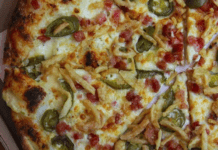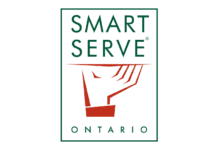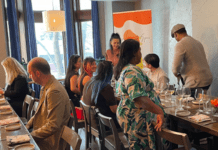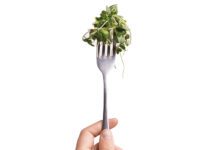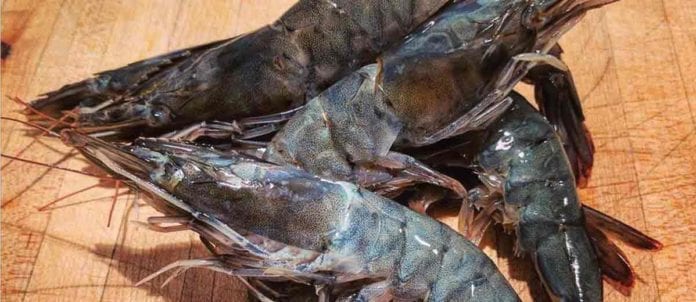PLANET SHRIMP
The town of Aylmer, Ont. seems an unlikely place to produce shellfish, but Planet Shrimp’s bio-secure facility is doing just that. Using inland aquaculture, it’s able to produce thousands of pounds of the Ocean Wise- and Sea Choice-certified sustainable shellfish. “People are surprised by what we offer because this is a tropical shrimp (white shrimp) that lives in 30°C water,” says Marvyn Budd, president, Planet Shrimp Inc. Budd says although there are 400,000 outdoor shrimp farms around the world, “Those farms are an uncontrolled environment. They have disease issues [which are] battled with chemical warfare — so now there are pesticides/fungicides in the water, they feed shrimp antibiotics and hormones — it doesn’t wash off.”
In order to offer a cleaner product, Planet Shrimp spent more than two years engineering its proof-of-concept building, which, once completed, will be 250,000 sq. ft. The tanks are the length of a football field, six-levels high and hold 650,000 gallons of water. “When we’re done, we’ll have about five-million gallons of water,” says Budd. “Once we’re at full capacity, we’ll produce about four million pounds of shrimp.”
The shrimp is grown in clear water, which is filtered every 90 minutes. “We separate the waste from the water and turn it into high-grade, high-nitrate fertilizer,” explains Budd. “We have no effluent going into the sewer system [because] we reuse our water. And we don’t use chemicals, antibiotics or hormones.”
The response from chefs has been overwhelmingly positive. “They say they’ve never had shrimp with such good texture and taste,” says Budd. “They’re happy it’s responsibly raised and clean, they trust it’s safe and are prepared to pay more for it. We can’t satisfy the demand we have for our shrimp and that’s good from a business perspective.”
ENTOMO FARMS
Since 2014, Norwood, Ont.-based Entomo Farms has produced whole roasted insects, as well as cricket powder.
Jarrod Goldin, who co-founded the business with his brothers, says the farm came about following the release of the United Nations and Food and Agriculture Organization’s white paper on the benefits of edible insects. “Most people thought we were crazy; a few thought we were great visionaries.”
The farm has expanded from 5,000 to 60,000 sq. ft. and is looking for another 100,000 to 200,000 sq. ft. to accommodate its growth. Growth, Goldin says, helped along when Loblaw’s added Entomo’s cricket powder to its President’s Choice product line. Last year, Entomo Farms celebrated Earth Week by bringing crickets onto the menus of Greater Toronto Area restaurants — including a campaign with Milestones featuring a chili-lime cricket margarita.
Insects are not only nutritious, says Goldin, but farming them has a minimal impact on the environment. “Crickets need 12 times less feed than cattle and four times less than sheep. They also require significantly less water,” he says. “The carbon footprint of food production needs to be taken into account so people can see there’s a relationship between the food they eat and the impact on their environment.”
CANADA BANANA FARMS
Ontario doesn’t summon images of bananas and guava, but Blyth, Ont.-based Canada Banana Farms maintains rainforest-like conditions in order to grow these tropical fruits year-round.
Started in 2010 by Terry Brake and Laurie Macpherson, the farm grows fruit in hoop houses — greenhouses made of long sheets of polyethylene stretched over a frame — heated by burning wood. The humidity inside the houses reaches 85 to 90 per cent — good enough to grow seven different varieties of bananas as well as oranges, limes, lemons, papaya, passion fruit, coconut, pineapple and guava.
“Our dream is to see [these fruits] growing everywhere and not have to depend on other countries,” says Brake. “We don’t need to rely on boats or planes and we can have better tasting fruit that would otherwise rot during transport,” he says. Brake says he hopes to expand the operation and be able to feed more people in the province.
“It’s actually cheaper than buying at the store,” he says. “Our papayas are $3 — at the store you pay up to $9. Everything we sell is cheaper than the grocery store. For us it’s not about the money, it’s about giving customers the best, freshest food at the best price.”

